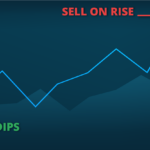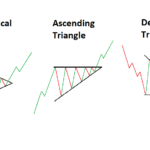All About Revenge Trading
Whether a newbie or a seasoned one, every traderA merchant who purchases and sells assets or services for profit. In financial markets, the trader b... will go through trading losses at one pointThe unit of price change for bonds (1%), futures (0.01%), shares ($1) and mortgage fees (1% of the p... or another in their trading journey. Losses are typical experiences that all traders can learn from, and with a proper trading plan in place, the losses can be manageable.
However, this is not always the case as not all traders have a trading plan or stick with it. Every trader reacts to a trading loss differently, and various factors can influence their subsequent actions after a trading loss.
One of the most common ways that traders react to losses is by “revenge trading.”
What is revenge trading?
By definition, revenge trading occurs when a trader makes one or more trades, which are often bigger and riskier, in an attempt to recover a loss from a previous trade. The idea behind this is to put in another trade to allow the trader to recover the said loss quickly.
That is only possible if the succeeding trade becomes a winning trade, but as every trader knows by now, the marketA location or entity where people and entities can negotiate and trade assets of value. is not predictable. A winning trade doesn’t always happen, and that succeeding trade can equally end up as another losing trade. As a result, the trader will lose more in the process of revenge trading.
Why do traders revenge-trade?
As human beings, everyone is a product of experiences and driven by instincts and emotions. When a trader suffers a trading loss, especially one that involves a significant amount of money they worked hard for, expect that they will want to recover it in any way they can.
The emotional loss recovery chase is how revenge trading sometimes finds its way in one’s trading journey – the trader spends time studying the market, gets everything set up, makes a trade, and everything looks good.
Then it backfires – it doesn’t turn out a winning trade, and the trader loses a significant amount of money. Yet, instead of taking the time to reflect on what happened and coming up with a good plan on how to move forward from the loss, the trader jumps right back in – angry and determined to win back what they lost.
Why should traders avoid revenge trading?
Revenge trading is trading based on emotions, and as such, it can have devastating consequences. While the intention may be good, traders should avoid it at all costs as it can result in even more considerable losses than the initial one.
There are many reasons why traders should stay away from the trap of revenge trading. Aside from not being a profitable trading strategy, it can make the trader blind to other trading opportunities as they are too driven and caught up by emotions to recover their loss in the same market.
By revenge trading, a trader ditches logic and allows emotions to override their trading plan, which is there for a good reason. A trading plan is a product of research and serves as a roadmap of how traders can make the most out of their trades after taking in all factors involved, such as risks, goals, and time horizon. By doing away with their trading plan, a trader exposes his investments to unforeseen and unprepared risks.
How can traders stop revenge trading?
While it can be hard to accept a trading loss, a trader should know how to handle such situations effectively to succeed in the industry.
When dancing with a trading loss, here are some helpful tips that a trader should keep in mind to avoid falling for the trap of revenge trading:
- Stick to logic and reason, and don’t let emotions rule your trades. It is usual for any trader to want to recover their losses immediately. However, this is not enough reason to go ahead and trade again based on your emotions. There’s a big chance you’ll end up blindsided by even more significant risks that you cannot afford and that it is not worth messing up your whole trading journey.
- Accept losses as inevitable and take responsibility for it. The sooner you accept that losses are part of trading and you are responsible for all your trading decisions, good or bad, the sooner you’ll learn and become a better trader.
- Take a break and assess your strategy. Time is always of the essence when it comes to trading, but this doesn’t mean you shouldn’t step back and take a moment to assess what happened, where you went wrong, and if you’re using the right strategy for your goal. Always make it a point to take a break and reflect on the different aspects of your trading journey.
- Assess your trading plan and make the necessary adjustments. Your trading plan is your roadmap in your trading journey, and this will help keep you on track with your trading goals. However, this doesn’t mean that trading plans should never change. Make the necessary adjustment to consider things that you did not anticipate when making your trading plan.
Revenge trading is not something to mess around with if one wishes to stay in the trading game. The added risks brought about by revenge trading can be overwhelming, and its consequences can be disastrous.
Are you interested to learn about trading? Head over to Queensway Academy for more information. Sign up now for a demo account.











